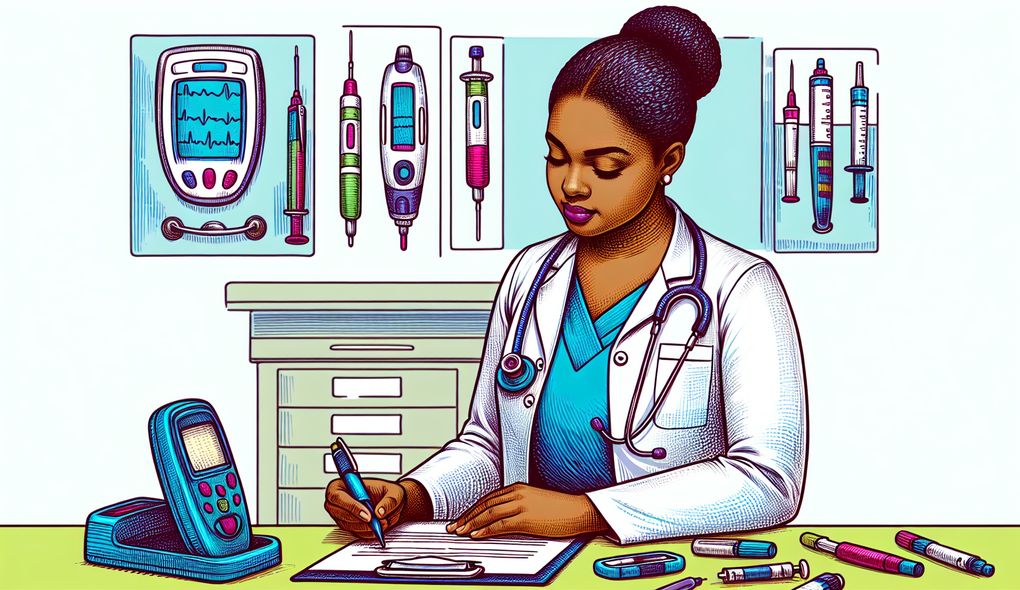Tell me about a time when you had to overcome a difficult situation in providing patient care.
JUNIOR LEVEL

Sample answer to the question:
During my time as a junior Endocrinology Nurse Practitioner, I faced a difficult situation in providing patient care when I encountered a patient with a complex case of diabetes. The patient was struggling to manage their blood sugar levels despite following the recommended treatment plan. To overcome this challenge, I took a proactive approach by thoroughly reviewing the patient's medical history, conducting additional diagnostic tests, and collaborating with other healthcare professionals. Through careful analysis, we discovered that the patient had an undiagnosed secondary condition contributing to the difficulty in managing their diabetes. Together with the patient, I developed a revised treatment plan that addressed both conditions, emphasizing regular monitoring and lifestyle modifications. By providing education and ongoing support, we were able to improve the patient's blood sugar control significantly. This experience taught me the importance of thinking outside the box and collaborating with the patient and other healthcare professionals to overcome complex challenges in patient care.
Here is a more solid answer:
As a junior Endocrinology Nurse Practitioner, I encountered a challenging situation when providing patient care to an individual with uncontrolled diabetes. Despite following their treatment plan, the patient's blood sugar levels remained consistently high. Recognizing the need for a comprehensive approach, I began by carefully reviewing the patient's medical records, medication regimens, and lifestyle factors. Through my critical thinking skills, I identified potential barriers to effective glycemic control. I initiated open and honest conversations with the patient, fostering a compassionate environment where they felt comfortable sharing their struggles and concerns. Together, we developed a new treatment plan that involved additional education, personalized dietary and exercise recommendations, and frequent blood glucose monitoring. To ensure seamless coordination of care, I collaborated with the patient's primary care physician and endocrinologist, sharing updates and seeking their expertise. Regular communication and collaboration allowed us to monitor the patient's progress closely. As a result, we achieved significant improvements in the patient's blood sugar control, enhancing their overall well-being and quality of life. This experience reinforced the importance of effective communication, multidisciplinary collaboration, and personalized care in overcoming challenging situations in patient care.
Why is this a more solid answer?
The solid answer provides a more comprehensive response by including specific details about the candidate's actions and the outcomes achieved. It demonstrates their knowledge of endocrine diseases and treatments, as well as their ability to communicate effectively and think critically. The answer also emphasizes the importance of collaboration in a multidisciplinary team and empathetic patient care. However, it could benefit from further elaboration on the use of electronic health records and medical software systems in the context of the difficult situation.
An example of a exceptional answer:
During my junior years as an Endocrinology Nurse Practitioner, I encountered a complex situation while providing care to a patient with poorly controlled diabetes and an underlying thyroid disorder. The patient had been struggling to manage their blood sugar levels despite adhering to the recommended treatment plan. Recognizing the need for a holistic approach, I conducted a detailed review of the patient's medical history, diagnostic test results, and medication regimen, using our electronic health records system. Through this analysis, I discovered a potential interaction between the diabetes medication and the thyroid hormone replacement therapy. I immediately consulted with the patient's primary care physician and endocrinologist to discuss alternative treatment options. Together, we devised a revised treatment plan, which involved adjusting the medication doses and closely monitoring the patient's response. To ensure effective collaboration and continuity of care, I utilized our medical software system to document and share updates with the entire healthcare team. Additionally, I took the time to educate the patient about the interplay between diabetes and thyroid disorders, empowering them to actively participate in their own care. By addressing both conditions simultaneously and providing ongoing support, we witnessed remarkable improvements in the patient's blood sugar control and overall health outcomes. This experience solidified my understanding of the significance of electronic health records and medical software systems in facilitating efficient communication, data analysis, and patient-centered care in complex situations.
Why is this an exceptional answer?
The exceptional answer provides a more detailed and comprehensive response that showcases the candidate's proficiency in using electronic health records and medical software systems. It highlights their ability to analyze data and identify potential medication interactions, as well as their collaboration with other healthcare professionals to devise a revised treatment plan. The answer also emphasizes the importance of empowering the patient through education and ongoing support. Overall, it demonstrates the candidate's excellence in all the evaluation areas mentioned in the job description.
How to prepare for this question:
- Reflect on past experiences where you faced challenging situations in providing patient care. Focus on cases related to endocrine disorders such as diabetes, thyroid disorders, or hormonal imbalances.
- Think about the steps you took to overcome the difficult situation. Consider specific actions, decision-making processes, and collaboration with other healthcare professionals.
- Highlight your ability to think critically and problem-solve in complex patient care scenarios.
- Practice discussing the importance of effective communication, collaboration in a multidisciplinary team, and empathy in providing high-quality patient care.
- Familiarize yourself with using electronic health records and medical software systems, and be prepared to discuss their role in facilitating efficient patient care and communication.
What are interviewers evaluating with this question?
- Endocrine diseases and treatments
- Communication and interpersonal skills
- Collaboration in a multidisciplinary team
- Electronic health records and medical software systems
- Critical-thinking and problem-solving abilities
- Empathetic and compassionate patient care

